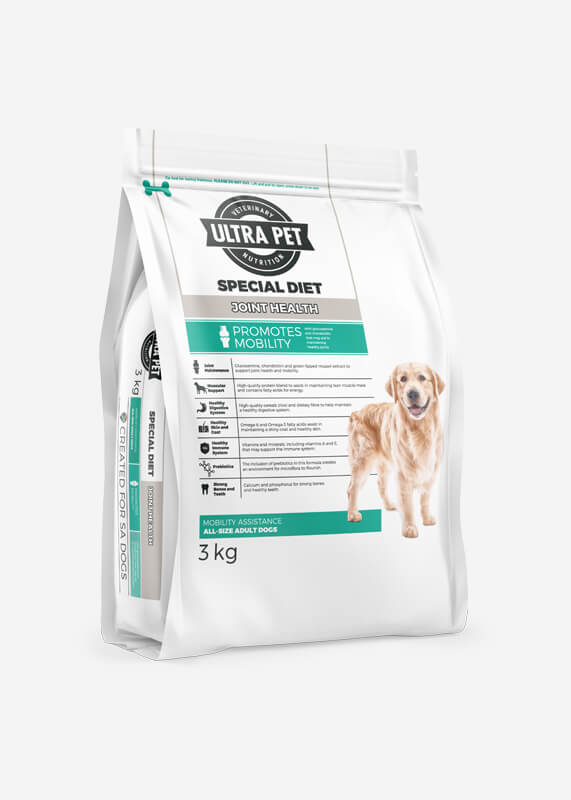Handy News For Choosing Yeast Infections In Dogs
Wiki Article
Omega-3 Fatty Acids: How Can They Benefit Joint Health?
Omega-3 fatty acids and in particular EPA (eicosapentaenoic Acid) and DHA docosahexaenoic acid play a vital role in maintaining the joint health in dogs and cats. How they function:
Anti-inflammatory Properties
Reduce Inflammation
Function Omega-3 fatty acids possess powerful anti-inflammatory properties. They decrease inflammation by reducing the production pro-inflammatory Cytokines (and eicosanoids), which are molecules.
Omega-3s help reduce joint inflammation and can relieve pain and swelling due to conditions like arthritis. This helps pets get more comfortable, thus improving the overall quality they live.
Joint Lubrication and Health
Improvement of joint Lubrication
Function The Omega-3 fatty acids keep the health of the synovial fluid, which helps to lubricate the joints.
Benefits of better lubrication: Less friction means less wear and tear for cartilage. This is advantageous for pets with joint problems or at high risk.
Cartilage Protection and Repair
Cartilage Protection:
Function: Omega-3s improve cartilage health by decreasing the activity of enzymes responsible for destruction of cartilage.
Benefits : Protecting cartilage helps keep joints healthy and reduces the progression of osteoarthritis.
Immune System Support
Immune System Regulation:
Function They are recognized for their ability to regulate and balance the immune system.
Benefits of having a well-regulated immune systems This can help prevent joint inflammation and damage through the regulation of the immune system.
Mobility that is comfortable and improved
Better Mobility
Function by reducing inflammation and preserving joint structures, Omega-3s help pets move more freely.
Benefits Numerous pets, especially older pets or those with arthritis show less pain and improved mobility. This results in a happier and more active life.
Additional Health Benefits
Overall Health
Function Omega-3 fatty acids help with skin, cardiovascular, and coat health. They can improve the overall well-being of pets.
Benefits: Healthy pets are more likely to be active and enjoy better joint health.
Considerations for Use
Dosage, administration and dosage The dose of Omega-3s recommended for your pet is based on its weight, size and any specific health conditions. The advice of the veterinarian or instructions on the label are essential.
Omega-3 sources: Fish oil supplements with high-quality can be a great source of EPA, DHA and other omega-3s. Make sure to select products that are specifically designed for animals in order to ensure their safety.
Omega-3 supplements tend to be secure, but some pets might suffer from digestive issues or unpleasant smells. To minimize side effects, start with a small amount and increase it slowly.
You can also read our conclusion.
Omega-3 fatty acid is highly beneficial for joint health for both cats and dogs. They can reduce inflammation, enhance the lubrication of joints and protect cartilage as well as help strengthen the immune system contribute to improved joint function and less discomfort. Regular supplementation will improve mobility for pets and encourage a healthier life. Take a look at the top dogs supplements for more tips including pet health supplements, australian natural pet products, pet supplements for pets with fear of illness, pet boswellia supplements, pet supplements for pets with special needs, organic pet supplements australia, pet probiotics australia, pet probiotics australia and more.

What Is Quercetin Help With Skin Allergies In Dogs As Well As Cats?
Quercetin, a flavonoid that is found in fruits and vegetables, has shown to be beneficial in the management of skin allergies among dogs and cats. This is how quercetin can help with skin allergies in pets:
Anti-Inflammatory Properties
Reduce inflammation
Function: Quercetin is a strong anti-inflammatory drug that blocks the production of proinflammatory cytokines histamines and chemokines.
Benefits In reducing inflammation, quercetin can reduce swelling, redness, and discomfort that are associated with skin allergies, resulting in improved skin health.
Antihistamine Effects
Natural Antihistamine:
Quercetin is a drug that blocks the release of histamines from mast cells. Histamines are chemical compounds that cause itching and other allergic symptoms.
Benefits: As an antihistamine that is natural quercetin may help to reduce itching and other allergic reactions. It also provides relief to pets suffering from skin allergies.
Antioxidant Activity
Oxidative stress reduction
Function: Quercetin is a potent antioxidant that assists in neutralizing free radicals and reduce the effects of oxidative stress.
Benefits Reduced oxidative stress may help protect the skin's cells from harm, promote healing, and maintain general skin health.
Immune System Modulation
Balanced Immune Response
Function: Quercetin is a modulator of the immune system, which ensures a balanced response against allergens.
Benefits A well-balanced immune system can prevent allergic reactions.
Enhancement of skin barrier function
Strengthening Skin Barrier:
Function: Quercetin is essential in maintaining healthy skin barriers through helping to produce ceramides.
Benefits: A thicker skin barrier helps protect against pathogens and allergens from the environment which reduces the risk of allergic reactions and infections.
Allergy Symptom Management
Symptom Relief:
Function: Quercetin reduces inflammation by blocking the enzymes responsible for it, such as Lipoxygenase.
Benefits: This can lead to lessening symptoms like itching, swelling, and redness as well as providing relief and comfort for pets.
Usage and Considerations
Dosage and administration: appropriate dosage of quercetin will be dependent on the size, weight, and medical needs. Always follow the directions on the package or the recommendations of your veterinarian. Quercetin and bromelain are often utilized together to enhance the effectiveness of the product.
Quercetin can be found as a pet supplement in many different forms. Choose a product that is safe and effective for your pet.
Quercetin may cause side effects. Quercetin is generally considered safe but excessive doses could cause stomach upset in certain pets. Start with a low dosage and gradually increasing it, you can minimize the side effects. It is essential to watch for adverse reactions such as vomiting or nausea.
Conclusion
Quercetin is used to manage skin allergies in both cats as well as dogs. Anti-inflammatory, antioxidant and antihistamine properties of quercetin can help reduce itching and inflammation and oxidative stress. They also help strengthen the skin barrier while modulating the immune system. Regular use of qurcetin may help significantly alleviate allergy symptoms. It also can enhance the general health of the skin and improve the overall health of animals suffering from skin allergies. Read the recommended dog herbalist blog for blog recommendations including pet rhodiola supplements, petz park, pet ginkgo biloba supplements, pet pregnancy supplements, pet digestive health, pet supplements for pets with fear of ear cleaning, pet licorice supplements, pet valerian supplements and more.

Apple Cider Vinegar Helps With Yeast Infections For Cats And Dogs.
ACV is employed as a treatment for yeast infections in cats and dogs. The acidity of ACV can trigger side effects and is not advised without the supervision of a veterinarian. Here's the way ACV is thought to help with yeast infections:
Antifungal Properties
An acidic environment
The acidity of ACV is between 2.5-3.0 pH. This acidic environment can create an inhospitable environment for yeast growth.
Benefits Applying ACV in its dilute form topically on your pet's skin or ears, as well as adding it to bath water helps to decrease yeast.
Skin pH Regulated
Balancing Skin pH:
ACV helps balance the pH of skin, promoting the formation of a healthy barrier for skin and inhibiting yeast growth.
Benefits: Maintaining the pH balance of the skin is a great way to avoid yeast infections and maintain overall skin health.
Anti-inflammatory effects
Reduce inflammation
ACV's anti-inflammatory properties, mild and gentle, is its primary function.
The benefits of lessening inflammation It can help reduce the symptoms that are associated with yeast infection including redness, itching and discomfort.
Support for Digestive Health
Internal Use
Function: When inhaled (in tiny amounts and with a high level of dilute), ACV is thought to promote digestive health and help balance the gut flora.
Benefits: A healthy gut environment can indirectly decrease yeast overgrowth, while also supporting immunity and microbial balance.
Usage and Considerations
Topical application: dilute the ACV in water (1 part ACV and 2 parts of water is typical) and spray or rinse it onto the affected areas of your skin or ears. It is advised to avoid using it directly on wounds that are open, or sensitive skin.
Use for internal use: Always consult with a doctor before using it in the body. ACV should be administered in very small doses and diluted (1 1 teaspoon to 1 tablespoon per cup of liquid) to prevent any stomach upset.
If you apply ACV topically take note for signs of irritation and allergic reactions. Discontinue use if any adverse reactions occur.
Consultation with Veterinarians: Before making use of ACV for treating yeast infection in animals, it's important to consult a veterinarian. They can offer advice on proper dilution, application methods, and potential risks based on your pet's specific medical needs.
End of Service
Apple cider vinegar can be used to treat yeast infections in dogs and cats However, it should be done under the guidance of a veterinarian. ACV could provide mild anti-inflammatory as well as antifungal properties due to the acidity of its nature. But, dilution is crucial and also careful use to prevent irritation. The guidance of veterinary medicine ensures that ACV is used safely and effectively as part of a complete treatment plan for yeast infections in pets. Follow the most popular extra resources for dog herbalist for blog info including pet stress relief supplements, pet glucosamine-chondroitin supplements, pet supplements for pets with cancer, pet supplements for pets with fear of needles, pet supplements for pets with eye problems, pet hip supplements, pet joint care supplements, pet supplements for senior pets and more.
